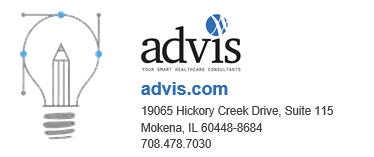https://advis.com/wp-content/uploads/2020/04/Cares-Act-funding-Overview.png
CARES Act Funding Overview
The CARES Act is a $2 trillion relief package aimed at providing emergency aid for individuals,
families, and businesses affected by the COVID-19 pandemic. The CARES Act includes provisions
to address supply shortages, ensure access to healthcare for COVID-19 patients, access to
financing for hospitals, and an overall expansion of resources necessary to aid organizations
impacted by the crisis. CMS continues to release funding in waves. The ongoing strategy is to target
disbursement to critical provider groups.
Advis has the knowledge and expertise to assist organizations in all matters related to CARES Act funding
Public Health and Social Services Emergency Fund ($100 Billion)
The Public Health and Social Services Emergency Fund is administered by HHS. These funds are available to eligible healthcare providers as reimbursement for healthcare related expenses or lost revenues attributable to COVID-19. Funds will also be used to cover uninsured patient care via a mechanism similar to Medicare reimbursement and at Medicare rates.
Eligibility: Public entities, Medicare or Medicaid enrolled suppliers and providers, and others as designated by the HHS Secretary that provide diagnoses, testing, or care for individuals with possible or actual cases of COVID-19.
Eligible Expenses:
• Lost revenue;
• Building or construction of temporary structures;
• Leasing of properties;
• Medical supplies and equipment, including PPE and testing
supplies;
• Increased workforce and trainings;
• Emergency operation centers;
• Retrofitting facilities;
• Surge capacity; and
• A portion of funding will cover providers’ costs of COVID-19 care
for the uninsured.
Medicare Accelerated and Advance Payment Program
The Medicare Accelerated and Advance Payment program is a temporary extension of the current CMS program. The program provides prospective Medicare funds when there is a disruption in claims submission and/or claims processing, including national emergencies, such as COVID-19.
Eligibility: All Medicare providers, including hospitals, physicians, DME suppliers, and other Medicare Part A and Part B suppliers, must meet the following qualifications:
• Billed Medicare claims within 180 days immediately prior to the
request;
• Not be in bankruptcy;
• Not be under active medical review or program integrity
investigation; and
• Not have any outstanding delinquent Medicare overpayments.
Amount of Advance:
• Inpatient acute care hospitals, children’s hospitals, and certain cancer hospitals – up to 100% of the Medicare payment amount for a 6-month period (critical access hospitals – up to 125%);
• Other providers/suppliers up to 100% of the Medicare payment
amount for a 3-month period.
Applicants will receive advance payment within 7 calendar days of the request. Recoupment will begin 120 days after receipt of payment and will offset against newly submitted claims. balances, inpatient acute care hospitals, children’s hospitals, certain cancer hospitals, and Critical Access Hospitals have up to 1 year from the date of payment to repay the balance. All other Part A providers and Part B suppliers have 210 days from the date of payment
to repay the balance.
Coronavirus Economic Stabilization Act ($500 Billion)
The Coronavirus Economic Stabilization Act is administered by the Secretary of the Treasury and provides access to loans in order to maintain solvency during COVID-19.
Eligibility: Businesses that have not otherwise received adequate economic relief in the form of loans or loan guarantees provided under the CARES Act.
Loans will not be forgiven and recipients are subject to employee compensation limits.
Payment Protection Program (“PPP”) ($349 Billion)
The Paycheck Protection Program (PPP) is an SBA loan to help businesses keep their workforce employed during the COVID-19 pandemic.
Eligibility: Businesses with less than 500 employees (most industries), including 501(c)(3) non-profit organizations and others. Please note, an approved lender must process the application by June 30, 2020.
Loan Amount: Up to two months of average monthly payroll costs from the last year plus 25% (capped at $10 million).
Eligible Uses:
- Payroll costs, including benefits (salary, wages, commissions, or tips – capped at $100,000 on an annualized basis for each employee; benefits including costs for vacation, parental, family, medical or sick leave; allowance for separation or dismissal; payments required for the provisions of group healthcare benefits; payment of any retirement benefit; state and local taxes assessed on compensation);
- Interest on mortgage obligations, incurred before February 15, 2020;
- Rent, under lease agreements in force before February 15, 2020; and
- Utilities, for which service began before February 15,
Economic Disaster Load (“EIDL”)
The Economic Disaster Loan is administered by the SBA and provides an emergency advance of up to $10,000 to small businesses and private non-profits harmed by COVID-19 within three days of applying. (Advance does not need to be repaid). The loan is available until December 31, 2020.
Eligibility: Any small business with less than 500 employees (including sole proprietorships, independent contractors, and self-employed persons), private non-profit organizations affected by COVID-19.
Loan Amount: Up to $2 million.
Eligible Uses: Expenses that could have been met had the disaster not occurred, including payroll and other operating expenses.
Please note, EIDL cannot be used for the same purpose as a PPP loan that has been received.
SBA Small Business Load Subsidy
The SBA Small Business Load Subsidy provides loan relief to existing SBA borrowers due to COVID-19 economic stresses. Additionally, this subsidy relieves a borrower of the principle, interest, and any associated fees in regular service status.
Eligibility: Must have a loan under § 7(a) of the Small Business Investment Act, Title V of the Small Business Investment Act, or made by an intermediary using §7(m) loans or grants
Our expert consultants are ready to assist you:
Published: May 1, 2020





